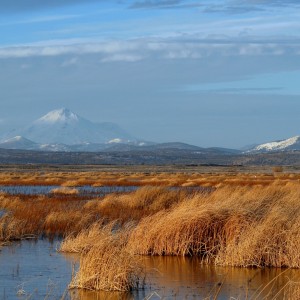The Stream, November 12: El Nino One of Three Strongest On Record
The Global Rundown |
El Nino is now one of the three strongest on record after water temperatures in areas of the Pacific Ocean reached their highest level in six months. The weather phenomenon is exacerbating dry, hot conditions in Johannesburg, South Africa, which recorded its hottest day ever this week. Government and business leaders met in Washington, D.C. to discuss potential responses to future scenarios where natural disasters disrupt global food security, and the prime minister of Tibet’s government-in-exile called on world leaders to take action on climate change. Montreal began releasing untreated wastewater into the St. Lawrence River.
“Tibet’s glaciers are melting, and the world needs to notice. Its permafrost is degrading, and the world needs to care. Tibet is suffering from massive deforestation and damming projects, and the world needs to act.”–Lobsang Sangay, prime minister of the Tibetan government-in-exile, in an opinion article urging countries to take significant action to curb climate change at the United Nations climate negotiations in Paris this December. (Guardian)
By The Numbers |
39.8 degrees Celsius Temperature reached in Johannesburg, South Africa on Tuesday — the hottest day ever recorded in the city. A drought in the country also left thousands of people in the city without water. Bloomberg
8 billion liters Amount of untreated wastewater that could be released into the St. Lawrence River over the next week as Montreal repairs its waste treatment system. Reuters
Science, Studies, And Reports |
Water temperatures in areas of the Pacific Ocean reached 2.4 degrees Celsius above average, the highest recorded since El Nino began this year, according to the Australia Bureau of Meteorology. The weather event is now one of the three strongest on record and, coupled with an Indian Ocean Dipole event, is expected to prolong drought conditions in Australia. Guardian
On The Radar |
Government, business, and aid organization leaders met in Washington, D.C. this week to play out responses to mock natural disaster scenarios that could destabilize food security in various regions around the world. Climate change is expected to increase the frequency and severity of disasters that could disrupt food supplies and prices, such as those in 2010 that contributed to the Arab Spring. Bloomberg
A news correspondent for Circle of Blue based out of Hawaii. She writes The Stream, Circle of Blue’s daily digest of international water news trends. Her interests include food security, ecology and the Great Lakes.
Contact Codi Kozacek







Leave a Reply
Want to join the discussion?Feel free to contribute!